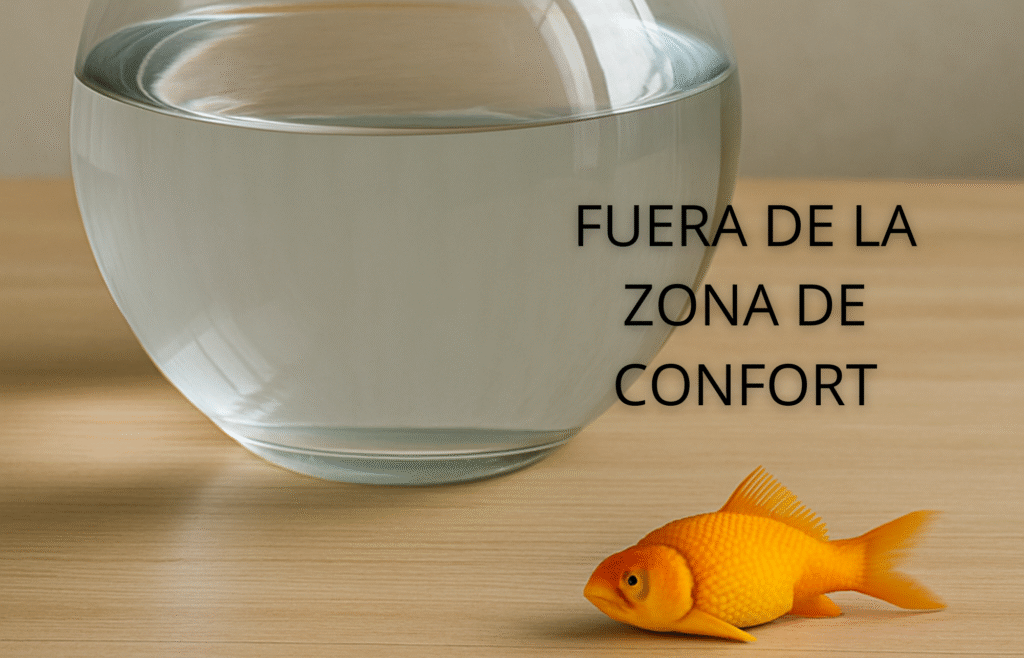En los últimos años, se ha consolidado una narrativa dominante en torno a la felicidad: la creencia de que mantener una actitud positiva constante es un signo de madurez emocional y éxito personal. Esta visión, ampliamente difundida por medios, gurús de autoayuda e incluso instituciones educativas, nos invita a ignorar el malestar y a “ver el lado bueno” de cualquier situación. Sin embargo, ¿qué sucede cuando este mandato del optimismo se convierte en una negación sistemática de nuestras emociones reales? ¿Existen riesgos para la salud mental? ¿Podemos hablar de pensamiento positivo tóxico? ¿Esto nos aleja de construir una zona de confort saludable? 🤔

Positive thinking as a form of emotional avoidance
No se trata de desestimar el valor de una actitud optimista ante la vida, sino de cuestionar el uso indiscriminado del pensamiento positivo como mecanismo de evasión. Sentir tristeza, enojo o frustración no es un error del sistema emocional, sino parte integral de la experiencia humana. Al tratar de reemplazar esas emociones por una felicidad artificial, no las resolvemos: las enterramos.
The worrying thing is that this emotional repression does not occur without consequences. Rather, it gives rise to a phenomenon that we could call double sufferingFirst, the original pain generated by an adverse situation; second, the guilt for not being able to "think positively," as we are required to.
The psychological cost of faking well-being
Let's imagine an everyday scenario: a job failure, a personal argument, or a deep disappointment. The most common cultural response is to minimize the emotion: “Everything happens for a reason”, “Think of the good”, “It could be worse”. Bajo esta lógica, no solo debemos afrontar el malestar original, sino también justificar nuestra incapacidad para erradicarlo mediante frases vacías.

This emotional pressure can trigger a series of consequences: ⚠️
- Relational conflicts: By not expressing what we really feel, misunderstandings and isolation increase.
- Accumulated stress: Internal tension manifests itself in the body, affecting our overall health.
- Deterioration of self-esteem: If feeling discomfort is frowned upon, we convince ourselves that something is wrong with us for feeling it.
- Emotional disorders: Constant repression can lead to anxiety, depression, or chronic emotional disconnection.
The normalization of uncomfortable emotions
Aceptar nuestras emociones no implica rendirse ante ellas, sino darles un lugar legítimo en nuestra vida mental. El enojo, la tristeza, la frustración o el miedo no son obstáculos que debamos erradicar, sino señales que requieren ser comprendidas. 🧠
Managing our emotions in a healthy way involves:
- Recognize what we feel without judging ourselves: Internal validation is the first step towards emotional balance.
- Express them appropriately: Talking to someone, writing, or finding symbolic ways to process them can be deeply liberating.
- Questioning toxic positivism: Not all experiences have an immediate lesson nor do they need to be “re-signified” to have value.
- Make way for the uncomfortable: Feeling pain isn't the same as being trapped in it. Denying it, on the other hand, can keep us trapped indefinitely.
Entre la aceptación y el bienestar genuino
La promesa de una felicidad permanente es tan atractiva como irreal. Lo paradójico es que, al buscar evitar el sufrimiento a toda costa, caemos en dinámicas que lo perpetúan. La madurez emocional no consiste en mantener la sonrisa, sino en aprender a convivir con la complejidad de nuestras emociones. 🌱
Accepting sadness, anger, or fear doesn't make us weak, but human. Recognizing and processing what we feel—without masking it or disguising it as forced happiness—is perhaps the most honest way to build well-being.
Finally, it is worth reflecting on these questions:
How many times have I tried to feel good just because I “should”?
What emotions have I repressed in the name of optimism?
I encourage you to share your thoughts and experiences in the comments. 💬


